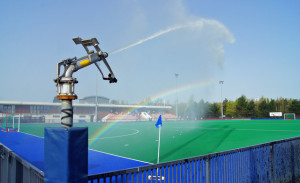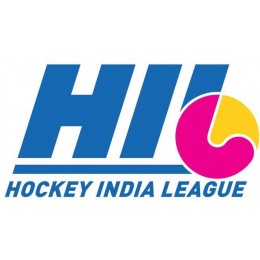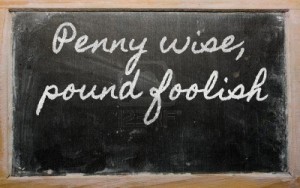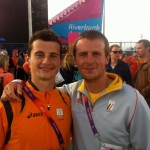Crappy beer… Great employer branding!
The Heineken marketeers strike again with “The Candidate”… an amazing case for employer branding & sponsor activation :
The Heineken marketeers strike again with “The Candidate”… an amazing case for employer branding & sponsor activation :
 Through the most recent phenomenon in international hockey, the HIL or Hockey India League, we once again were confronted with the diversity of the world and of course also the world of sports. And while the echo of the Indian fireworks at the HIL finals could still be heard the IOC almost cut our sport from its most prestigious podium, the Olympics. Reasons for almost being cut were , as heard through the grapevine, the image of being a sport of the Commonwealth nations but not anywhere else… Strange reasoning if that were the case. Germany, The Netherlands, Spain, Argentina, Korea are, to name but a few well performing hockeycountries at international level, not any part of the Commonwealth. Champions have come from all continents in recent history. However we must not be blind to the fact that we’re not exactly part of the major sports on a global scale and so there is still a lot of work ahead for the FIH…
Through the most recent phenomenon in international hockey, the HIL or Hockey India League, we once again were confronted with the diversity of the world and of course also the world of sports. And while the echo of the Indian fireworks at the HIL finals could still be heard the IOC almost cut our sport from its most prestigious podium, the Olympics. Reasons for almost being cut were , as heard through the grapevine, the image of being a sport of the Commonwealth nations but not anywhere else… Strange reasoning if that were the case. Germany, The Netherlands, Spain, Argentina, Korea are, to name but a few well performing hockeycountries at international level, not any part of the Commonwealth. Champions have come from all continents in recent history. However we must not be blind to the fact that we’re not exactly part of the major sports on a global scale and so there is still a lot of work ahead for the FIH…
The differences between hockey in different continents
In Europe, or at least several western European countries, we are blessed with the concept of clubs, family oriented clubs, and the competition that goes with it. Most of us don’t even realize how lucky we are to have such a set up. Not only does it help getting more people involved in sports, it adds a valuable element to our social life and to the education of our kids through the feeling of an extended family for those sports who manage to create this extra. But even as close to home as the western European countries we see a lot of differences in the way these clubs are managed, with a strong family focus in countries such as the Netherlands, Belgium and Germany and a different approach for example in Spain or the UK and most Commonwealth countries.
 In other parts of the world the entire concept of a club (with teams for young and old, men and women and entire families participating in club life) is unknown. In India for example, as most if not all Asian countries, clubs for sports do not exist. Indian hockey doesn’t have a club competition, it has the tradition of sports at school and it has teams playing for their company or other employer (army, postal services, police, …). And these teams meet in tournaments, not in competitions that last for several months during a year. Lots of reasons exist for these differences, besides obvious cultural differences, distance is often a reason. But another very important reason is infrastructure… The choice for waterbased pitches as the international standard has not made it easier to develop our sport of hockey globally. Water is an issue in most parts of the world, we tend to forget that over here…
In other parts of the world the entire concept of a club (with teams for young and old, men and women and entire families participating in club life) is unknown. In India for example, as most if not all Asian countries, clubs for sports do not exist. Indian hockey doesn’t have a club competition, it has the tradition of sports at school and it has teams playing for their company or other employer (army, postal services, police, …). And these teams meet in tournaments, not in competitions that last for several months during a year. Lots of reasons exist for these differences, besides obvious cultural differences, distance is often a reason. But another very important reason is infrastructure… The choice for waterbased pitches as the international standard has not made it easier to develop our sport of hockey globally. Water is an issue in most parts of the world, we tend to forget that over here…
No easy task
So promoting our game to become a truly global sport, and thus ensuring its Olympic future, is no easy task… The FIH has some committees & “developpers” in place for each continent, however I’m not sure what they’re doing and if any of it is paying off. But that might be because I live in a country which is doing just fine already and doesn’t really need the attention of these “developpers”. The only efforts that do reach us are those directly related to topsport development by the FIH top, because these make more interesting newsitems to the press obviously. Although at first I wasn’t very enthusiastic about their choice to build the World League at the cost of the Champions Trophy and the Champions Challenge, they might be on the right track there anyway. Engaging more countries than in previous formats…
I do think sport is an exception to the rule that “bottom up” is usually the best way to build whatever you want to achieve. In sports I think the “top down” approach is more likely to succeed. Meaning you start building teams to compete at the international level, because those playing sports are competitive by nature and want to have something to aim for. If not for themselves then for their sons and daughters… However it seems to me all these efforts would go to waste if at the same time you do not facilitate at the grassroots level, especially in youth… Allthough I’m a firm believer in our European club life I do respect other cultures, other countries, having a different take on things, different customs. So there is most likely not just one way to get where we want our sport to grow.
 What to do…
What to do…
I’m a bit concerned by the latest rumours about a World League for clubs (next to the one already in existance for countries) they (= FIH) seem to be planning…. I do not believe it will contribute to the global development of our sport, maybe even quite the contrary. Firstly I do not see what teams from for example the Asia-Pacific continents (India, Pakistan, Korea, Australia…) would participate in such an event, nor from the USA or other countries from the American continent (except for Argentina). They do not have the club structure we have in Europe but the top level of our sport is being played in short tournaments with specially composed teams, such as the AHL (Australian Hockey League) in the very competitive Australia or the recent HIL (Hockey India League) in India. But most of the important players in these leagues are also attached to the important European clubs and how to solve in which team they would play in such a World League for clubs? The HIL, but also the AHL in Australia and the EHL in Europe are wonderful events, contributing largely to our sport, but I do not see any added value to a global club competion of any sort. It is not without reason I think this kind of event does not exist in any of the major team sports.
However I do think, whatever the structure of the sports in each country, the FIH should be facilitating the developing countries, firstly with regards to infrastructure and maybe put some pressure on finding the alternative to waterbased pitches. Secondly the development of national teams in smaller hockey countries, in all age categories and for both sexes, and thirdly in the ongoing development of good youth academies offering the possibility to learn the sport at an early age and throughout most of the year. That’s why I was very happy to hear the winner of the very first HIL, the Ranchi Rhinos are also setting up a new youth academy in their region. Whether these youth academies are based at clubs, schools or companies is less relevant. Important is they will offer the possibility to develop the practice of the game for at least 6 to 9 months during the year. In geographically smaller countries these would lead to national competitions (among clubs, or schools, or companies…), in larger countries where travel would prevent such a competition it would lead to regional competitions and for example one shorter national event (such as the AHL in Australia) for a select few that did well in the regionals.
Infrastructure, national teams, youth academies…. In my opinion that’s where the FIH should focus, that’s where the money should go!
 Met de economie in zwaar weer worden overal de kosten onder de loupe genomen. Terecht vanzelfsprekend… Een logische evolutie is dus ook dat ook de kosten voor recruitment onder druk staan. De headhunters die zich specialiseerden in retained direct search krijgen om die reden vaak te horen dat er geen budget meer is voor hen omdat de open vacatures ingevuld moeten worden door de interne recruiters, middels de klassieke media als eigen website, de gekende jobsites en de heilige graal LinkedIn. Bekend verhaal niet?
Met de economie in zwaar weer worden overal de kosten onder de loupe genomen. Terecht vanzelfsprekend… Een logische evolutie is dus ook dat ook de kosten voor recruitment onder druk staan. De headhunters die zich specialiseerden in retained direct search krijgen om die reden vaak te horen dat er geen budget meer is voor hen omdat de open vacatures ingevuld moeten worden door de interne recruiters, middels de klassieke media als eigen website, de gekende jobsites en de heilige graal LinkedIn. Bekend verhaal niet?
Toch blijven er diverse redenen bestaan om toch te kiezen voor de investering in een échte headhunter. De meest essentiële is niet altijd even eenvoudig uit te leggen en bestaat uit twee componenten :
De meest succesvolle bedrijven zullen voor cruciale functies – niet alleen op directieniveau dus – systematisch kiezen voor de externe specialist in direct search, de headhunter!

Als u een vacature heeft in te vullen waarvoor u niet de juiste man of vrouw reed in huis heeft gaat u noodgedwongen op zoek naar versterking van buiten uit. De gemakkelijkste weg is dan het bekend maken van uw vacature bij die mensen die op zoek zijn naar (nieuw) werk. Vroeger was dat altijd een advertentie in een of andere krant of in de desbetreffende vakpers, tegenwoordig kan je online ook op tal van manieren je vacature bekend maken, gericht op specifieke doelgroepen of naar de massa. Met de klassieke media had je als groot nadeel dat je enkel onder ogen kwam van een klein deel van de potentiële kandidaten, namelijk de actief werk zoekende kandidaat. Met de nieuwe online mogelijkheden, denk aan LinkedIn, heb je al wat meer opties om ook de passief zoekende kandidaat onder ogen te komen.
In het beste geval kom je uiteindelijk uit bij het beste talent dat op de markt was… Meestal echter is dat niet het beste talent in de markt!
Het beste talent in de markt is gewoon aan het werk. Doet graag waar hij of zij goed in is en heeft weinig tot geen oog voor andere uitdagingen. Misschien weet u perfect wie u wil, dan kan u hem/haar gewoon direct benaderen. De realiteit is echter dat dit vaak niet zo voor de hand ligt, zelfs als u weet wat/wie u wil.
De headhunter is meestal de enige weg om het beste talent in de markt te identificeren en te benaderen. Meestal is de ideale kandidaat niet op de markt om voor de hand liggende redenen. Uw headhunter identificeert de markt voor u, contacteert de beste mensen in het vak en zal hen uw propositie niet alleen onder ogen brengen maar ook trachten te verkopen. Ik zal u niets nieuws vertellen dat wat goed is vaak ook iets meer inspanningen kost… maar uiteindelijk de moeite loont. Aan u om te bepalen of u tevreden bent met een goede kandidaat of dat u de lat nog iets hoger legt…
Bij veel functies heeft u gewoon iemand nodig die zijn/haar werk goed doet, correct, op tijd en als het ook nog even kan efficiënt. Ook zij hebben hun rol binnen de organisatie maar hun functioneren, een goede of slechte dag/week/maand – zolang ze hun werk maar doen – heeft niet direct impact op de winst of verlies factor.
Anderen, zowel op directie als operationeel niveau, hebben wel een directe impact op uw resultaat. Hun functioneren ziet u (direct) terug in de cijfers, uw marketeers en verkopers, maar ook functies die instaan voor financiën of R&D of productie… Bij deze cruciale functies loont het de moeite u af te vragen of u kan volstaan met het aanwerven van het beste talent “op” de markt of dat u zich de moeite moet getroosten op zoek te gaan naar het beste talent “in” de markt! U kan besparen op de korte termijn kost van uw aanwerving door te kiezen voor het talent op de markt of u kan ervoor kiezen te investeren in de zoektocht naar het beste talent in de markt die u op middellange en lange termijn meer zal opbrengen.
Voor iedere functie weegt u baten en kosten tegen elkaar af en dan is het aan u om te kiezen of de korte termijn kost op dit moment zwaarder door weegt of dat u toch de voorkeur zult geven aan iemand die een grotere bijdrage kan leveren aan uw resultaat. Heeft u de moeite genomen uit te rekenen wat het terugverdien effect zal zijn van de investering in de keuze voor het beste talent in de markt? Dan heeft u ook een beeld wat het u uiteindelijk zal kosten indien u kiest voor de korte termijn besparing…
 Kortom, vanzelfsprekend is het in deze tijden – maar eigenlijk altijd – een must om uw uitgaven streng te beoordelen. Maar het selectieproces van uw belangrijkste “resources” – uw “human resources” – verdient op zijn minst een weloverwogen keuze waarbij alle kosten en baten op korte, middellange en lange termijn meegenomen worden…
Kortom, vanzelfsprekend is het in deze tijden – maar eigenlijk altijd – een must om uw uitgaven streng te beoordelen. Maar het selectieproces van uw belangrijkste “resources” – uw “human resources” – verdient op zijn minst een weloverwogen keuze waarbij alle kosten en baten op korte, middellange en lange termijn meegenomen worden…
Bent u zoek naar iemand die impact zal hebben op uw resultaat, denk dan ook even aan deze bekende oude wijsheid zoals de Engelsen het mooi kunnen formuleren : “Don’t be penny wise and pound foolish!”
Belgen en teamsport… Ik kan me toch niet van de indruk ontdoen dat het toch een beetje een verstandshuwelijk blijft. ‘t Is niet dat het niet werkt, maar de passie is toch ver te zoeken…
 Enkele weken geleden werden de Red Lions, de Belgische nationale hockeyploeg bij de heren, de ploeg van het jaar op het jaarlijkse sportgala. Voor de eerste keer dat mijn sport, hockey, in de prijzen valt in mijn tweede vaderland. Een belangrijk verschil met het vergelijkbare sportgala in Nederland is het merkwaardige feit dat in België de prijzen worden verkozen door de zogenaamde vakjournalisten waar dit in Nederland gebeurd door de collega sporters. Vraag iedere topsporter waar ze meer waarde aan zouden hechten….
Enkele weken geleden werden de Red Lions, de Belgische nationale hockeyploeg bij de heren, de ploeg van het jaar op het jaarlijkse sportgala. Voor de eerste keer dat mijn sport, hockey, in de prijzen valt in mijn tweede vaderland. Een belangrijk verschil met het vergelijkbare sportgala in Nederland is het merkwaardige feit dat in België de prijzen worden verkozen door de zogenaamde vakjournalisten waar dit in Nederland gebeurd door de collega sporters. Vraag iedere topsporter waar ze meer waarde aan zouden hechten….
Maar teamsport is altijd al het ondergeschoven kindje geweest in België. Nog nooit werd bij mijn weten in een volwaardige teamsport door een Belgisch team het allerhoogste bereikt. Nog nooit Olympisch goud, nog nooit een WK titel of zelfs amper hier en daar misschien in een ver verleden een EK titel… Bij de jeugd wordt de laatste jaren enige progressie geboekt met onder andere enkele Europese titels in het hockey bij de jongens. Ook dit jaar was een vijfde plek op de Olympische Spelen voldoende om met ruime voorsprong de beste sportploeg in België te zijn. Niet dat ik hier geen respect voor heb, integendeel… De vooruitgang die het Belgische herenhockey heeft gemaakt sinds 2004 is meer dan respectabel en daar doe ik mijn hoedje voor af. Visie & passie zijn echter de elementen die ontbreken opdat België zich ook in teamverband een topsportland kan noemen!
This week Belgian media announced they are going to implement a joined initiative for a payment solution to restore a lot of their content behind a new version of the Berlin Wall. They thought it to be necessary to ensure their future. A couple of months earlier our very own Belgian (or should I say Flemish) media tycoon Christian Van Thillo, one of the men behind this fight against free content on the internet, also picked a battle with the Telenet people (providers of internet, TV and telephone solutions in Flanders) because of the (mis)use of their TV-digicorder allowing us, the viewers, the public, to fast-forward through his commercials… It shows the lack of comfort the old media still exhibit versus new technologies and a changing world.
However I think they’re making some huge mistakes going into the defensive mode, looking at ways to shield of their content and to force their public to look at their content “their way” – so including the ads for example, too many ads and way too many teasers for their own programs in between the content we wanted to see. They might be, to put it rather bluntly, the first among those criticizing the old dictator regimes far away in their struggle against the revolution towards freedom, according to me they have more or less the same reflexes when it comes somewhat closer to home… ;)
However sometimes some of these guys/girls do get it and bring us something the way we, the public, like it… Rediscovering the interesting blog Belgiancowboys.be I stumbled upon their item about Snow Fall. A great example of online storytelling was published earlier this week by the renowned NY Times. Their attempt of bringing together media, the way they exist today, in the story “Snow Fall” may not be that spectacular, for the most of the public, but that is just one of their greatest achievements. It comes so naturally to us readers we immediately forget the way they tell this story has not been that common until now.
So, when you have some time, get out your laptop or even better your iPad and start reading, viewing, listening… enjoying a story well told on these so-called new media… Click here!
Nice variation on the Gotye hit single “Somebody I used to know”…
Director: Adam King
In Nederland werd vorige week een vrijwilliger op een sportclub, een amateur voetbalclub, doodgeschopt… door enkele foute pubers… Daar schrikt men dan weer even van. Als fanatieke hockeyliefhebber heb je dan gelijk de neiging te zeggen: blij dat ik voor hockey koos en niet voor dàt voetbal. Deels terecht, deels onterecht lijk me enkele dagen na die primaire reactie.
Praten om te praten
Op zich was het een nieuwsfeitje dat ook buiten Nederland wat stof deed opwaaien, dus had het toch meer een “man bijt hond” gehalte dan omgekeerd, ook in deze maatschappij die ondertussen toch enigszins apathisch staat tegenover dagdagelijks geweld. Zoals het dan in Nederland gaat worden er weer hele praatprogramma’s mee gevuld, wat dat doen ze daar graag. En worden er weer talrijke niet ter zake doende meningen over geuit die vaak IMHO kant noch wal raken met als toppunt de suggestie dat je het misschien zou kunnen voorkomen door de buitenspelregel af te schaffen in die archaïsche sport. Ik ben een groot voorstander van praten, luisteren, communiceren over tal van zaken om zo tot een oplossing te komen die werkt echter kan me opnieuw niet van de indruk ontdoen dat het in Nederland vaak belangrijker is dat je “er een mening over hebt en die uit” dan over de inhoud… Maar goed dat zal ook wel te maken hebben met het opgroeien in België…
Het zijn de ouders die in de fout gaan, niemand anders…
Ook ik ben zo’n typische club vrijwilliger die dus niet alleen met sport in aanraking komt om even de frustraties van de werkweek te kunnen uiten, maar ook regelmatig aan de andere kant van dat verhaal staat, ook als scheidsrechter bijvoorbeeld. Afgelopen zondag was het weer eens zo ver, een veteranen hockey wedstrijd. Je zou denken dat je dan ten minste niet maken krijgt met opgefokte pubers waar de hormonen door het lijf gieren met alle gevolgen van dien, maar ook die oudere zogenaamd wijzere mannen kunnen er soms wat van. Sporten als middel om af te reageren vanwege de frustraties opgelopen tijdens de werkweek of in een huwelijk waar de sleur er wat ingeslopen is. Halverwege de eerste helft slaat zo’n opgefokt mannetje expres (maar wellicht zonder er bij na te denken) de hockeybal in frustratie hard en recht naar mij (en zo’n bal kan hard aankomen weten de hockeyers) nadat hij me luttele seconden ervoor ook verbaal al had aangepakt… Dan praten we dus over een deftige hockeyer he, niet over zo’n stukske voetballer zonder manieren… Frustraties en emoties kunnen soms hoog oplopen tijdens het sporten, wie je ook bent… welke sport je ook beoefent…
Maar hoe voorkom je dan dat zoiets bij jeugdspelers ontspoort? In de hoop dat ze later als volwassenen een dergelijk moment ook weten te herkennen om dan tijdig zelf op de rem te trappen. Alle campagnes voor respect op het sportveld ten spijt, net als alle regelwijzigingen en pleidooien voor zero tolerance, etc…. Er is maar 1 oplossing die echt effect heeft volgens mij: de aandacht van vader en moeder voor hun kind! Natuurlijk kunnen diverse andere zaken mee helpen bij het beheersbaar maken van frustratie, opgekropte emoties en spanningen op en naast het sportveld, maar het begint mijns inziens allemaal bij de opvoeding die je als ouder meegeeft aan je kind. En daarmee bedoel ik niet enkel het opleggen van jouw regels, waarden en normen aan je kinderen, maar vooral de aandacht die je besteed aan elk van je kinderen. Er zijn duizenden zaken die ik fout gedaan heb (en doe) in mijn leven, maar minstens op 1 vlak kan ik met veel trots in de spiegel kijken vind ik van mezelf en dat is de aandacht die ik aan mijn ondertussen volwassen kinderen gespendeerd heb… Ook als single parent met 3 kids die alledrie in een andere ploeg speelden maakte ik de tijd vrij om hen de aandacht te geven die zij nodig hadden om evenwichtig op te groeien. Ik was erbij en wist waar ze zaten….
Ook ik ben in dit trieste voorval van de doodgeschopte grensrechter natuurlijk niet meer dan zo’n typisch voorbeeld van iemand die niet exact op de hoogte is van de juiste ins & outs van dit ene drama en er toch zijn mening over heeft. Dat besef ik me ten volle maar toch durf ik te stellen dat het niet gebeurd zou zijn als de ouders van die paar jongens in dat voetbalploegje de keuze zouden gemaakt hebben in hun leven meer aandacht te spenderen aan hun kinderen. Ik durf, zonder verder enige kennis van zaken, te stellen dat het mij niet zou verbazen dat de ouders van die jeugdige criminelen nog niet eens een kwart van de vrijetijdsbesteding van hun zonen bijwoonden. Daar ging het mis… bij de ouders die kinderen op de wereld zetten en vervolgens zich weer voornamelijk met hun eigen leventje bezig houden en te weinig aandacht geven aan hun kinderen in die cruciale jeugdjaren tot ze als jonge en hopelijk evenwichtige volwassenen gevormd zijn. Die misschien ook nog wel eens kunnen ontsporen (we blijven allen menselijk) maar die dankzij de aandacht die ze destijds kregen van thuis uit weten wanneer er op de rem getrapt moet worden als de emoties het even overnemen…
Alles begint bij aandacht…
My youngest son, still only 24 today, has had an incredible year this 2012… He has seen his dream come true last summer when he competed in the London Olympics. I’m not ashamed to say I had to wipe some tears from my face when he told me just before the summer he made the final selection for the Dutch national hockey team.

My oldest son had already been told he would go as a member of the Belgian coaching staff, so this would make the London Games a true family thing. Hockey is kind of a way of life in my family and our hockeyclub is as it were a part of the family or so it seems some times.
Aiming high…
We’ve all had our share of successes (and failures) on the field but he had set his goals pretty high. After some early successes for the Belgian youth teams he decided to use his double nationality and go for the Dutch national team. A team playing consistently in the top 3 worldwide and with some 230.000 players considerably more competition for a spot on the top compared to the 15.000 Belgian hockeyplayers at that time. He resisted the temptation to return to the Belgian team before and after the Beijing Olympics and worked hard to get noticed by the Dutch selectors and for years he came close, often missing out on the selection only by an inch… He missed out on several Champion’s Trophies, two European Championships and a World Cup and the frustration grew, especially not making the cut for two major tournaments in less than a year before the Olympics. Were these efforts and sacrificies during all those years going to waste or…
Doing what it takes…
Whether or not he would have made it, I would have been proud on both the efforts and choices he made during these years, after all I am his father. But when push came to shove he was able to go the extra mile ensuring he would have done everything within his power to make the dream come true. It would have been easier to point the finger of blame into another direction but he took a good hard look at what had to be done and than gave it all he got and some more and was rewarded for this with a participation in the London Olympic Games.
On August 10 tears welled up again reading his facebook status about how he was about to play the game (the Olympic final) he had been dreaming about since he was a little kid… Dreams do come true… if you make them come true! And when they did (he won a silver Olympic medal), they are quickly replaced by new dreams… new goals… :)
Do one thing every day that scares you…
I started thinking about all of this reading a recent newspaper article (the old fashioned kind on paper) about him in light of the Champion’s Trophy about to start in sunny Melbourne… And having this mind used to wandering off, it reminded me of the inspirational speech by Al Pacino’s character in Any Given Sunday he used often to get the juices running before a game. Life’s this game of inches… And his favorite inspirational speech led me to one of my favorites: Rocky Balboa in front of his son dispensing “his” wisdom… The world ain’t all sunshine and rainbows…
However when it comes down to fatherly advice I think Baz Luhrmann’s “Wear sunscreen” song comes closest to my take on things. I’ll add all three videos below so you can make up your own mind. Enjoy !
Sometimes you don’t need to do a lot of explaining…
It is an old ad for monster.com… I’m not a big fan of them but their ad was funny… gotta admit that ;-)